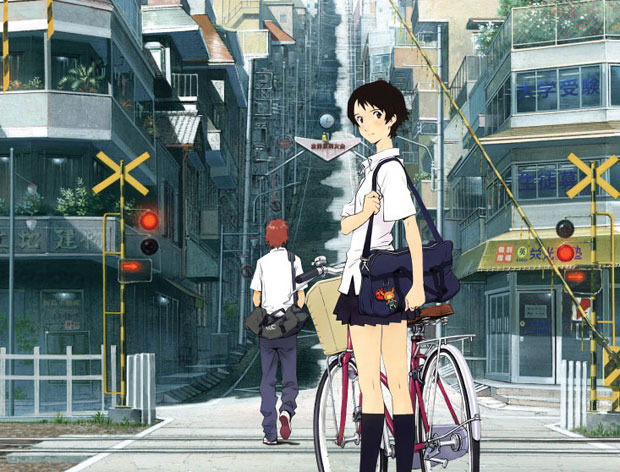Genre: Drama, Science Fiction
Creators: Mamoru Hosoda, Satoko Okudera, and Yasutaka Tsutsui
Studio: Madhouse
Length: 98 minutes
Year: 2006
Highlights: Time travel as art
Acting as an adaption and loose sequel to the 1967 novel of the same name by Yasutaka Tsutsui, the film stars Makoto Konno, an ordinary high-school student living in Tokyo. She enjoys visiting her aunt, an art restorer at the National Museum, and playing baseball with her friends Kousuke and Chiaki. Her life is completely normal, until one extremely unlucky day. Makoto oversleeps, has her favorite pudding eaten by her sister, is late for school, flunks a math quiz, accidentally sets the home-ec room on fire, and has a weird accident in the science lab. To top it all off, the brakes on her bike give out on the way home, and she gets thrown in front of a fast moving train.
Then, much to her surprise, Makoto finds out she is not in fact dead but has actually gone back in time. With a little experimentation, she discovers that she has somehow gained the ability to quite literally leap through time, giving her the ability to relive her life and fix the mistakes she made. She uses it to get to school early, ace that math quiz, and even relive the same karaoke session ten times in a row. But as time goes on, Makoto starts to realize how her ability is affecting other people, and how her knowledge of the future affects her ability to repeat the past. Furthermore, she soon discovers that her ability might not be limitless.
The Girl Who Leapt Through Time is at its core a drama film, which just happens to examine the effect that time travel has on an ordinary girl’s relationships. Specifically, the film speculates upon the nature of action and consequence, and how knowledge of the future would affect both. As Makoto soon finds out, being able to change your own past actions to something more favorable to yourself often has adverse effects on others. She also realizes that it is often impossible to relive the past if you have knowledge of the future. She can never fully repeat and enjoy those past moments if she is aware of their consequences. Makoto loses her innocence, in a sense, which can never be regained no matter how far back in time she leaps.
This film is also a great science fiction film in that it takes a lofty scientific concept such as time travel and brings it down to the everyday and ordinary, postulating about how our lives would be effected by such a radical technological advancement. Despite gaining this amazing power, Makoto doesn’t use it to change world history, kill Hitler, or anything so dramatic. Instead, she uses it to make sure she gets to eat her favorite pudding. This creates a personable and relatable tone that an epic historical drama never could. Rather, by focusing on an individual and that individual’s actions, we learn more about the topic of time travel than we ever could from a work that merely uses it for action and adventure. In that sense, it is science fiction is purest, most distilled from.
Take a work like Back to the Future, Terminator, or Doctor Who. As fun and entertaining as all of them are, in the end they don’t connect on a personal, intimate level, because they are stories about heroes and villains and adventure. The time travel aspect is just a set piece, and if you whittled them down to their base components, those stories would make sense in numerous other settings and genres. I can’t relate to a man who travels back in time to save the world because I have no personal connection to that. In that sense, it is escapism and fantasy. But what I can relate to is a girl who goes back in time to spend more time with her friends. I can relate to her going back to fix the mistakes on a test she knows she got wrong. And I can relate to her wanting to go back to before she knew something that changed her world, that changed who she was, but knowing that she can’t. This is what separates fantasy from art. And this is why I love The Girl Who Leapt Through Time, because if I could go back in time, I wouldn’t use it to kill Hitler or save the world. I would use it to eat the pudding I never got to eat.

 RSS Feed
RSS Feed
